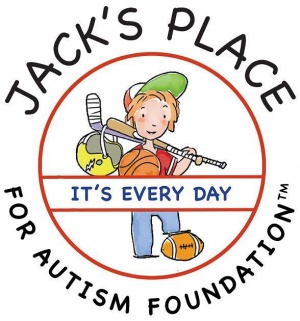In this world, there are a lot of derogatory terms people can hurl at others. Whether you are different than someone else by virtue of race, religious belief or social class, there’s bound to be a negative word that describes a part of your identity. For people with autism and similar developmental disabilities, the common term thrown is the “r-word” but I want to talk about a lesser-used derogatory term. This term known as the “s-word,” sped.
For those well versed in the English vernacular, you obviously know that at face value, sped is commonly used as a past tense verb to describe someone who was speeding. As it is with the English language, there are plenty of homonyms and sped is an example of one. The derogatory term sped has a pretty simple origin – it’s a shortened way of saying “special education.” When at school, people with autism – for the most part – are placed in separate classes from the rest of the student body. Sometimes they are integrated into normal classes, but for the most part, they are kept away from the general body. The separation alone – while probably beneficial for all parties involved – make people with autism and/or other developmental disabilities easy targets for the general public.
If you just learned that sped can be seen as a derogatory term and remain perplexed as to why this is a derogatory term, allow me to provide some personal perspective. To do this, we will go back in time to the year 2002, when I was in the seventh grade. It was the recreation part of our lunch period and I was standing by my usual spot, observing everything that happened. Not too far from where I stood, I saw a group of teenagers my age, talking about girls. I overheard one person mutter, about how speds would have trouble establishing relationships. The conversation these people were having continued to revolve around that term and what those people couldn’t do.
That one particular moment in the seventh grade has always stuck with me. It hurt me to hear what others said about people who didn’t exactly ask for this. In a way, it made me feel a lot worse about myself. It made me feel like my peers, growing up, would always think the way those teenagers did. I felt like there was no hope for someone like me. It brought a lot of questions up as to just how much I could accomplish when no matter what I did, people could still label me as a sped. As a result, I isolated myself from a majority of my peers. Fortunately, my peers did grow up and learn that the rhetoric they used back then was wrong.
But allow me to ask what I believe is a fair and simple question: Why go after a group of people with autism or other developmental disabilities when most likely, they have done nothing to warrant derogatory terms and negative stigma? This question lingers today with the advent of social media. I see countless tweets on Twitter about the s-word and the r-word, even people saying they “feel autistic” after reading something. Now you might think I’m following people just to prove my point – but no. Search the terms “autistic,” “sped,” and “retarded” or “retard” on Twitter and see how inaccurately these words are being thrown around.
The reason I wanted to talk about this was because of something I stumbled across while online. I found myself on the Parent Herald, a website for – you guessed it – parents. Looking for content to share, I saw that the main category the site used to aggregate news involving children with special needs was labeled as “sped kids.” I didn’t think about it much at the time until I got home from work on Tuesday and really thought about the term sped.
Maybe times have changed and sped no longer bears a negative definition. However, I still remember that term in a negative manner and I wish that others could see the negativity involving that word as well, with hope that we can just get rid of using it.
